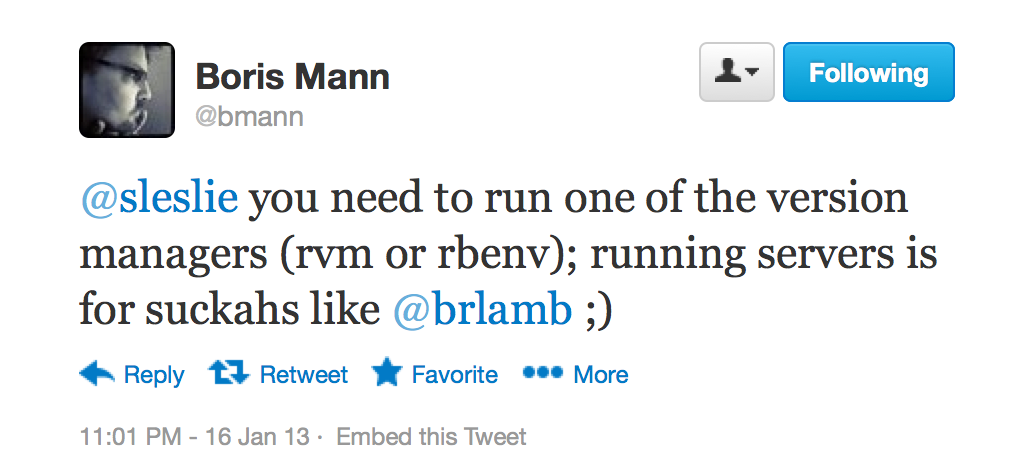
Wetter water, slimier slime! shared CC by mattedgar
I am trapped in a quagmire of delirium.
First, a quote from Yochai Benkler, prompted by a reading of Scott Leslie’s preliminary musings on the networked university:
My basic claim is that people are diversely motivated, and that large-scale collaboration platforms, with permeable boundaries, freedom and capacity of action, on materials modularized for diversely-sized contributions, allow for the pooling of a diverse range of human talent, insight, experience, and wisdom—much more so than was feasible in more slow-moving organizations, and more richly diverse than a purely price-based system can characterize and monetize.
I don’t pretend to fully grasp Benkler’s work, but I believe that this claim is critical to how those of us working in higher education might conceptualize and implement our technology. Yet it’s a bitter truth that tools emphasizing diversity, freedom, and permeability are an uncomfortable fit within university environments. Resourcing decisions tend to sideline such principles. Martin Weller captures the all-too-common reality when he relates the struggles he has in establishing a roll-your-own MOOC using fairly mature and widely-adopted tools:
Now, the sensible way to do this seems to be to install WordPress and use the FeedWordPress plug-in. For reasons I won’t go in to, I haven’t been able to get this done at the Open University, despite trying since last July. I’ve spoken to people at others unis and it isn’t isolated to the OU, it seems to be this low-level, experimental type of IT support is increasingly difficult to find.
Do you know who I think the culprit is? The VLE. As universities installed VLEs they became experts at developing enterprise level solutions. This is serious business and I have a lot of respect for people who do it. The level of support, planning and maintenance required for such systems is considerable. So we developed a whole host of processes to make sure it worked well. But along the way we lost the ability to support small scale IT requests that don’t require an enterprise level solution. In short, we know how to spend £500,000 but not how to spend £500.
“Enterprise” approaches can squeeze out more nimble and experimental ones in a number of ways. One is simply budgetary: big projects are expensive, and absorb most of the available resources. More perniciously, they promote the development of a support infrastructure that is not only expensive to maintain, but that requires a tightly coordinated and regimented approach to run properly. That’s why it’s hard to “spend £500″… in a large organization, it’s hard to even draft and distribute a detailed project plan for that kind of money. (Of course, you need a detailed and vetted project plan before initiating any technology pilot, right?) Maybe someday I will write the post I’ve been wanting to write for years… that the most dangerous word in education is “serious”. Today is not that day. Suffice it to say that the VLE/LMS is a “serious” technology. And for whatever reasons, blogs usually still aren’t. Thankfully.
I can relate to what Martin describes. Here at TRU I am gratified and excited by the willingness of people across the institution to try new things. But I have already learned that enthusiasm only gets you so far. At some point, you need skilled technical and educational professionals to do this stuff right.
To an extent, being part of a network of peers ameliorates these difficulties. I have benefited immensely from the advice, assistance, code and platforms of friends and relative strangers. It’s been amazing to watch Alan Levine work magic for initiatives led by Nancy White and Alec Couros. Alan and other gifted and generous people like Martin Hawksey and Tony Hirst have been helping Martin out. But the title of Martin’s post is “Twitter is your IT support”, which sounds groovy, but also sounds uncomfortably close to a sticker I saw on Jim Groom’s laptop. Sorry to descend into serious enterprise logic, but it doesn’t scale. (Along those lines, kudos to Commons in a Box.)
CODA: as I merrily flog away here trying to rebuild and gather proper support resources for a MediaWiki/WordPress framework like the one we built at UBC, I start getting baited by Boris Mann:
Boris is referring to a “new hack stack” based on the notion of Platform as a service (PaaS). Maybe my thinking about this case has become very uptight. Raising the unpalatable possibility that while I hope to be promoting “collaboration platforms, with permeable boundaries, freedom and capacity of action, on materials modularized for diversely-sized contributions”, maybe I am stuck in my own locked-down serious enterprise mindset…


I feel old brother.
I have the gut feeling that where networked platforms are headed is where Boris is pointing. It’s not about one approach being right or wrong, but even the MySQL – PHP world I adore gets big and creaky sometime. One day it may be as quaint as mainframes running COBOL.
I feel old, but forever young.
Thanks for the update to getting the image back on my blog 🙂 I have some thoughts about this one, I’ll see if I can;t blog one day soon 😉
Thanks for the link love and thoughts.
On whether it scales it kinda does and kinda doesn’t. Having a good network of people you learn from does scale – in fact it scales better than top-down approaches. But you’re right in that it doesn’t scale beyond a certain level. If I really want to provide a proper solution I’m either going to have to become shit-hot WordPress man, or get some institutional support. So it scales from a learning and experimenting perspective but not from a reliable service perspective.
As you know, my concern is that because we always want the latter, we have systems in place that only recognise this. But you have to go through the former sometimes to get to that stage, and by stifling that stage we cut off the flow through of innovation.
But I’m also sympathetic to friends and colleagues who work in IT support and who get every individual academic demanding a bespoke solution and claiming that their pet project is special. You need a standardised central provision (and indeed it can often do most things you want).
I just want people to acknowledge that I’m special…
Leyendo: “The squirming facts exceed the squamous mind” | Abject http://t.co/Z3nSCn8f
I so feel your pain. Couple of points.
1) This quote “Yet it’s a bitter truth that tools emphasizing diversity, freedom, and permeability are an uncomfortable fit within university environments.” It is a bitter truth, but an even more bitter irony in that universities should be that place where diversity, freedom and permeability (what a great word) are allowed to flourish. Yet, when dealing with technology, this is not the case. Expectations from students and faculty are that technology always works, and as Alan so beautifully pointed out in a tweet last week, we do a disservice when we foster the idea that technology always works. But none of our stakeholders – faculty or students – will give you slack when technology fails.
2) Sustainability/scalability/operations cannot live in the same organizational unit as innovation. I think there needs to be another layer in the structure. You have innovators….you have operations….and in the middle you have the piece that has the mandate, resources and skills (because I don’t think most innovators nor those in operations have the right skills or often perspective) to move projects from one state to the other. Innovators should never have to figure out how to make it sustainable or scalable. It is not what innovators do.
The unfortunate reality that Martin nails dead on is how many institutional resources are eaten up supporting an LMS. I live that everyday. I have a staff of 5 who spend the vast majority of their time supporting the LMS. And it kills me, mostly because it still isn’t enough. How can I innovate when the bloody grade import function of the LMS is preventing 200 students from getting their final grades? ARGGHHHH!
3) I saw the image and thought this post was going to be about Captain Beefheart. I am only somewhat disappointed :).
I’ve always had the sense that without mainstream VLE/LMS, the smaller initiatives, floundering along the best they can and as they will, lose some of their punch. This sounds awfully hypocritical but I guess we need Enterprise IT to focus on many of the administrative scale-makes-perfect projects so that academic technologist have some basis to set themselves apart from these IT colleagues. It gives them some room to breath and feel they can innovate. Every once in awhile we do! So, a bone gets tossed your way sometimes, perhaps in the shape of a part-time programmer, and you make some small leaps forward. Or you get some PD funding, a PHP programming course for non-hacking edtech folks like me. Suck the marrow while you can! This said, I find myself pushing WordPress Multsite along in the same steps of LMS; hey, now we’ve got it integrated with LDAP thanks for the Enterprise folks! Making blogs behave like course shells is brilliant, when they open up to the public even better. But without LMS, WordPress blogs would lack appeal with more savvy, tuned-in faculty (almost said hipsters!). I’m interested in your WP/Mediawiki project. I just hope you’re not running it on servers under your desk! 🙂
“The squirming facts exceed the squamous mind” http://t.co/Hq6AHFeT (via @oldaily) #elearning #edtech
“The squirming facts exceed the squamous mind”:
,
, January 21, 2013.
One of the questions I ask myself on… http://t.co/nREiAGH7
Great post by @brlamb on institutional alternatives, VLEs and hack stacks http://t.co/OJ4WdkLI